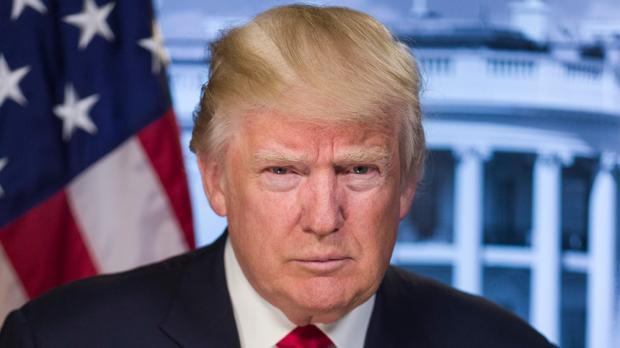Letter: My Country ’Tis of Me
President Trump’s recent ban on immigrants and refugees represents a new wave of aberrations in American policy: led by the president, the nation will become too comfortable distinguishing between foreign and native bodies. What used to be an exercise in demographics has become an exercise in exposé. This may be maddening, but it’s also criminal.
With the new ban, American policy is welcoming the distinctions of foreign and native that we’ve often fought against. There’s a reason we debated the differences among melting pot, salad bowl, mosaic, and kaleidoscope: words matter because they shape thinking. At best, the ban will normalize a new strain of nativism, while capitalizing on the high-power alienation rhetoric Trump enjoys. He may be living out his agenda literally, but he’s also building a sense that this persecution is inherently nationalistic, even inherently American. Little could be more damaging.
Of the 867 hate crimes happening within 10 days after the election, 49 were motivated by anti-Muslim sentiments and 280 by anti-immigration sentiments, according to the Southern Poverty Law Center. Clearly, hate, coupled with a misunderstanding of basic human rights, motivated some to lash out, but if we’re so keen on preventing supposedly foreign Anti-Americanism, what’s to be said about the real anti-Americanism right here, right now?
It’s not purely speculation to predict an uptick in crimes against immigrants and Muslims in the coming months. This, because hate and violence directed toward minorities have increasingly normalized. The roots of this are certainly older, but none have mobilized it through political policy like this presidency.
Trump’s ban speaks to a new nation, a My Country ’Tis of Me, populated mostly with wealthy, white elites. The corridors of power have long been defined this way. Trump himself may be holding up a mirror when he makes these appointments and delivers this policy, but we needn’t let him bask in the supposed glory (really nativism) he defines. If he wants to whitewash America, a ban on Muslims and refugees is a logical place to start. But if he really wants to become a president by and for the people, there’s real work to be done.
Already, Trump’s executive order has mobilized our most American industries: Airbnb will offer free housing to refugees, Starbucks will hire 10,000 refugees in the next five years, and Lyft will donate $1 million to the ACLU. As much as we dismiss these segments of pop culture, it’s time we recognize their spending, and by extension, their political power. Their gestures will move us toward a country by and for the people, even if the president doesn’t unwaveringly stand that way.
Boycotting these companies in support of the ban only defines an elitism that prefers pocketbooks over policy. Still, it’s an elitism colored by Trump’s supposed nationalism. I’m no founding father, but it’s tough to believe that inclusiveness isn’t of the utmost importance in today’s fragmented world.
Banning Muslims and refugees is fundamentally anti-American. Strikingly, the ban is predicated on Muslim stereotypes that have popularized in a post-truth world. To Trump, according to the Washington Post, “It is the policy of the United States to protect its citizens from foreign nationals who intend to commit terrorist attacks in the United States; and to prevent the admission of foreign nationals who intend to exploit United States immigration laws for malevolent purposes.” But not all foreign nationals “intend to commit terrorist attacks.” Not even a majority do. But the language argues otherwise.
There’s little that could be more offensive than the implicit claim that every national is exploiting “immigration laws for malevolent purposes.” That is, after all, what the language says. I’d be hard-pressed to see if Trump thought fleeing from potential violence is one of these purposes. There may be precedence for this exclusiveness, but we needn’t allow anymore.
In 1989, my parents boarded a plane and left Romania permanently. Only once they reached Rome did they find out that they were on the last plane to leave the airport before Ceaușescu was deposed and executed. Imagine being blindsided by a chaos like that. But their arrival wasn’t politically unfettered: At the whim of an American policy, they were forced to wait nine years before leaving Romania. They arrived as political refugees looking to work and to prosper. And they succeeded—at odds, here and there—because that’s what America has always promised: a chance. When they look at the climate Trump is building—one that fears, even hates foreigners—they, and I, can’t help but see themselves inside this dynamic. Just how many futures, Trump, are you willing to silence in the name of what’s clearly unpopular, anti-America, too?
Citing the same policy that kept my parents waiting and the one that will keep today’s refugees waiting isn’t the answer. Any country by and for the people, any real super-power, delivers immediacy in times of crisis. It may not be perfect, but it’s there. That, precisely, is what Trump lacks with such a misinformed policy. Banning Muslims and closing off refugees is defining a powerful new country—but one, I fear, that can no longer be called America, for America, is after all, its immigrants.
Persisting otherwise is more than a logical fallacy: America without its immigrants isn’t America. If we’re going to use the power of language against these immigrants, that same power will be used against us. “Malevolent purposes” isn’t just turn of phrase: It’s also reaffirmation of the Muslim stereotypes we see every day. If it’s offensive to suggest that America needs a new name, what does it mean for our president to essentialize this entire group into threats? It should go without saying that’s wrong, but a distinctly American hypocrisy prevents some from seeing that. In 2017, we needn’t stand by them anymore.
George Goga is a writer and teacher from Buffalo, New York. Currently, he’s writing a book about what the American life well-lived is supposed to look like.

